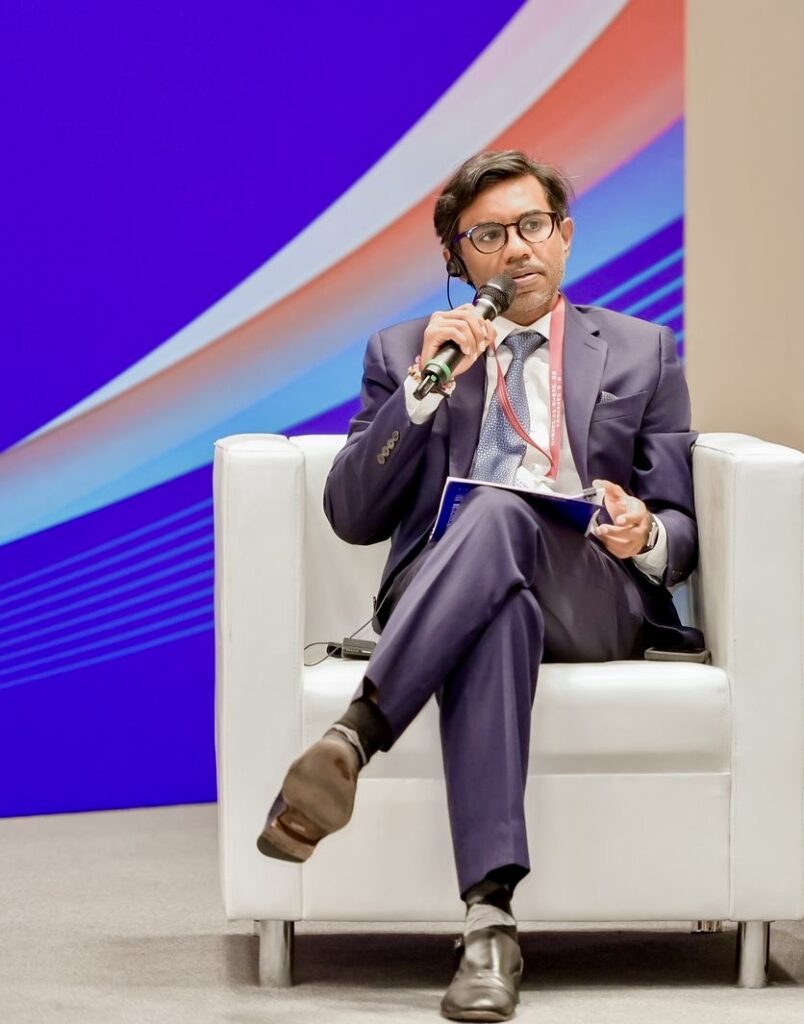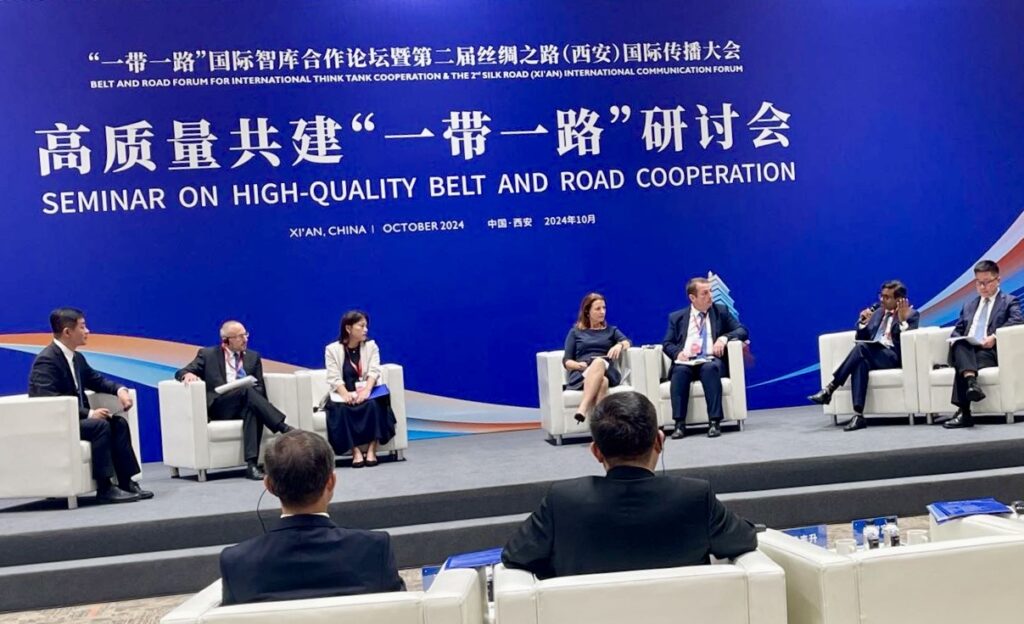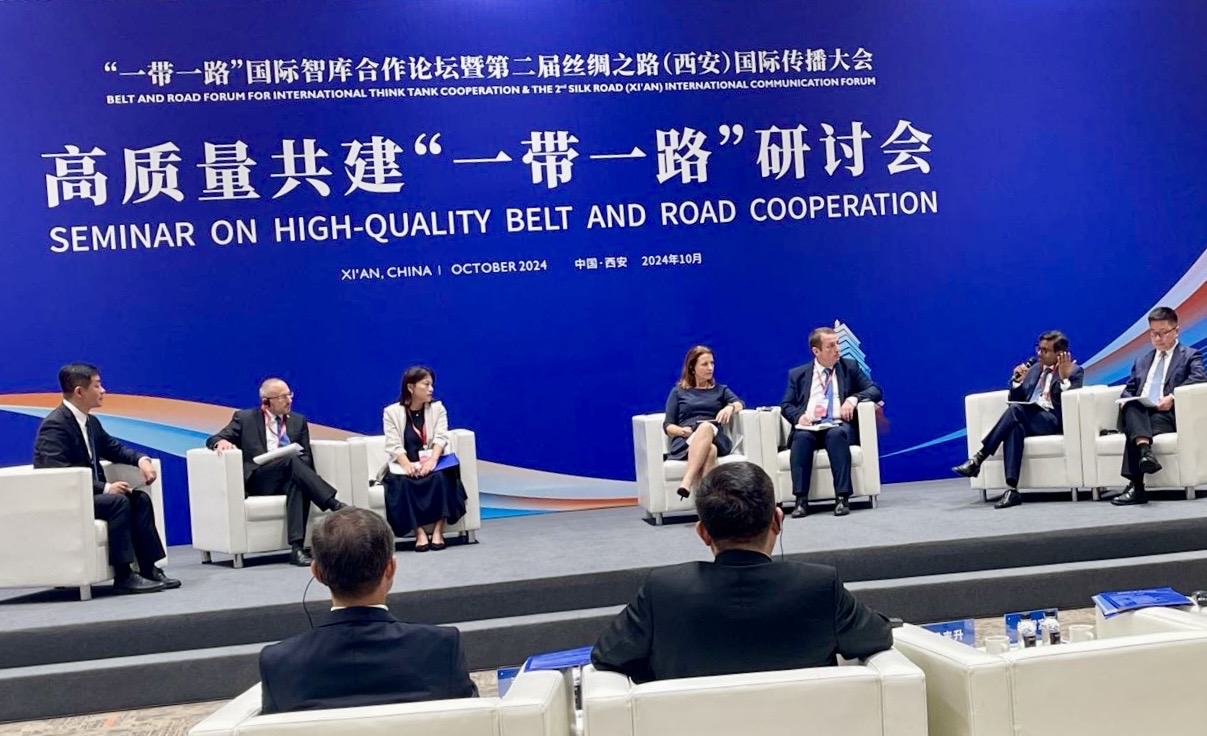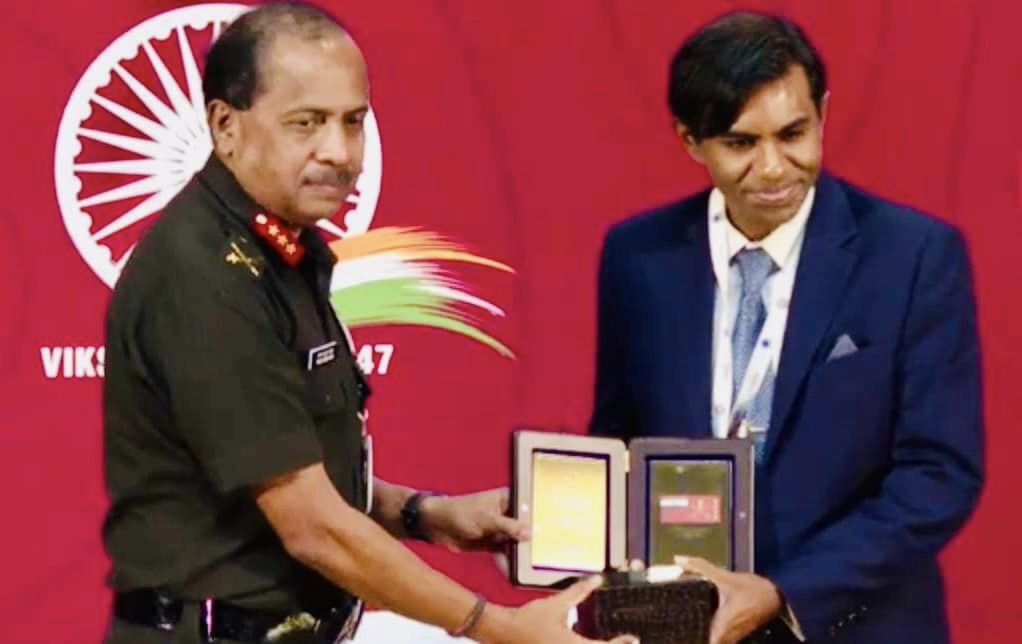
Abeyagoonasekera outlined how Sri Lanka’s evolving political landscape under the NPP offers an opportunity to strengthen its role within the Belt and Road Initiative (BRI). He emphasized the importance of fostering pragmatic, synergetic cooperation between Sri Lanka and China, particularly through the BRI, as a pathway to support national development and modernization in a rapidly changing global environment.
Xi’an, China (14th October 2024) – At the 2nd Belt and Road International Think Tank Cooperation and Silk Road International Communication Forum in Xi’an, China, renowned Sri Lankan geopolitical analyst Asanga Abeyagoonasekera delivered an address, stressing the pragmatic synergy between Sri Lanka and China within the Belt and Road Initiative (BRI). Drawing from the political theories of Antonio Gramsci, Abeyagoonasekera outlined how Sri Lanka, under the newly elected leadership of President Anura Kumara Dissanayake, can strategically partner with China to advance national development while effectively navigating the shifting complexities of the global geopolitical landscape. Following is the full speech:
Distinguished panelist, guests, ladies and gentlemen. I thank Xinhua Institute for the kind invitation. I am deeply honoured to present at this important conference on the Belt and Road International Think Tank Cooperation and the 2ndSilk Road(Xi’an) International Communication Forum in Xi’an. I had the privilege of presenting a Sri Lankan perspective at the inaugural conference in 2023 and the 2nd BRI conference today. I thank China for appreciating my research on the subject of BRI.
“we are still at a zero-sum, hegemonic mentality failing to find Synergetic relations where countries can work together to enrich human lives and collaboratively finding solutions for many global challenges“
The world we live is facing complex challenges with two full scale wars in two geographies. More than 40,000 people have died in Palestine, a serious an alarming concern for the entire global community. Unfortunately, we are still at a zero-sum, hegemonic mentality failing to find Synergetic relations where countries can work together to enrich human lives and collaboratively finding solutions for many global challenges. I wrote my paper Sri Lanka’s Strategic Role in Belt and Road Cooperation with China: A Gramscian Analysis reflecting on Antonio Gramsci’s work and applying to find solutions to the new world order as Gramsci aptly observed, “The old world is dying, and the new world struggles to be born”.
In the aftermath of Sri Lanka’s 2024 presidential election, which saw Anura Kumara Dissanayake(AKD) rise to power, the nation faces pivotal questions regarding its geopolitical future—particularly its relationship with China’s Belt and Road Initiative(BRI). As the world transitions into the ‘Fourth Industrial Revolution’, marked by the convergence of technological advancements and global modernisation, high-quality Belt and Road cooperation presents an opportunity for developing nations like Sri Lanka to align with China, a global leader in economic transformation.
My paper examines Sri Lanka’s evolving role within the BRI framework through the theoretical lens of Antonio Gramsci, the renowned Marxist political thinker. Gramsci’s concepts of hegemony, transformismo, and passive revolution provide an essential framework for understanding Sri Lanka’s strategic positioning under AKD’s pragmatic leadership. In the backdrop of Sri Lanka’s ‘People’s Uprising’ in 2022, a political party, National Peoples Power(NPP), with a past Marxist ideological leaning with its foundational structure at Janatha Vimukthi Peramuna(JVP), has come to power, defeating the traditional two political parties or their coalitions. The paper explores the ideological evolution of the NPP by comparing the strength of Marxist ideology in Sri Lanka’s new political party and its reformist tendencies in political movements across a sample of countries, including China.
“There are many lessons that Sri Lanka could learn from China’s economic miracle from 1978 to the present leadership of President Xi Jinping”
The new president AKD’s approach balances Sri Lanka’s national interests and the broader geopolitical dynamics influencing its development trajectory. There are many lessons that Sri Lanka could learn from China’s economic miracle from 1978 to the present leadership of President Xi Jinping, who ‘inherited and carried forward Deng’s legacy through comprehensively deepening reform’. Sri Lanka’s pivotal role as a strong BRI partner and a historic China-centric ‘Peking wing’ oriented political party, the JVP in the background, will open a window of opportunity for the new administration to position with the BRI. This analysis will explore how, under AKD’s stewardship, Sri Lanka might leverage its partnership with China to enhance national growth while navigating multiple geopolitical pressures.

Pic L-R: LIU Hua, Research Fellow of Xinhua Institute; Dragan Trailovic, Research Fellow, Institute of International Politics and Economics; CHEN Wei, Vice President, China Institute of Reform and Development; Magdalena Rybicka, Dep.Dir. Asia Research Institute, Vistula University; Andrei Radulescu, Member of the Bretton Woods Committee; Asanga Abeyagoonasekera, Senior Fellow and Executive Director South Asia Foresight Network; YANG Bing, Director Administration Committee of Xi’an Chan-Ba International Port.
“High-quality cooperation, grounded in a pragmatic approach, can enable Sri Lanka and other BRI nations to assert China’s role as a key player in global modernisation while preserving its sovereignty and cultural identity.”
As Sri Lanka embarks on a new chapter under AKD’s leadership, Gramsci’s theoretical framework offers a profound understanding of how the country can engage with China’s BRI to advance national development. High-quality cooperation, grounded in a pragmatic approach, can enable Sri Lanka and other BRI nations to assert China’s role as a key player in global modernisation while preserving its sovereignty and cultural identity. This partnership represents a Gramscian passive revolution—an incremental transformation that aligns with sustainable and inclusive development goals. Sustainable infrastructure, modernised trade, and technological innovation reflect Gramsci’s transformismo and war of position, allowing China to introduce an alternative to the present world order through cultural diplomacy and long-term strategy. Meanwhile, people-centric modernisation and cultural exchanges help build hegemonic consent positively by winning the hearts and minds of the population, embedding China’s influence in a subtle, cooperative manner. Through its engagement with the BRI, many developing nations could contribute to the global shift towards a new world order, positioning itself as a strategic player in this evolving landscape.
In this context, the partnership between Sri Lanka/other BRI nations and China can be considered a Gramscian passive revolution. This incremental but transformative process aligns with the broader sustainable and inclusive development goals. Through its engagement with the BRI, Sri Lanka stands poised to contribute to this new world, positioning itself as a strategic player in the evolving global order. Thank you!
To access the full research paper presented at the forum contact Xinhua Institute China.



